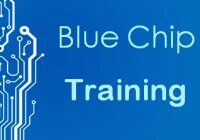 Overview
Overview
Flyway is an open-source database migration solution that simplifies SQL or Java-based database migrations. Flyway uses a command-line interface to execute basic migration commands and supports databases such as Oracle, SQL Server, MySQL, PostgreSQL, and more.
This instructor-led, live training (online or onsite) is aimed at database administrators who wish to install, set up, and manage Flyway and its capabilities to perform database migrations.
By the end of this training, participants will be able to clean up, migrate, validate, repair, and monitor databases using Flyway.
Format of the Course
- Interactive lecture and discussion.
- Lots of exercises and practice.
- Hands-on implementation in a live-lab environment.
Course Customization Options
- To request a customized training for this course, please contact us to arrange.
Requirements
- Experience with database management and database management systems
Audience
- Database administrators
Course Outline
Introduction
Overview of Flyway Features and Architecture
- Core concepts
- Existing plugins
- Supported databases
Getting Started with Flyway
- Setting up the Flyway command-line tool
- Initial configuration
- The 7 basic commands
Migrating with Flyway
- SQL-based migrations
- Java-based migrations
- Script migrations
- Transactions, query results, and schemas
Configuring Flyway
- Parameters
- Environment variables
- Config files and placeholders
- SSL support and authentication
- Secrets management
Executing Database Migrations
- Running the Flyway API
- Executing migrations with Maven plugin
- Executing migrations with Gradle plugin
Integrating Flyway into a Project with Existing Databases
- Data extract and cleanup
- Aligning the databases
- Creating baseline versions
Managing Database Migrations
- Reviewing migration status
- Creating repeatable migrations
- Undoing migrations
- Executing callbacks
- Overriding errors
- Performing dry runs
Exploring Advanced Flyway Features
- Test data management
- Backward compatible migrations
- Zero-downtime migrations
Troubleshooting
Summary and Conclusion
